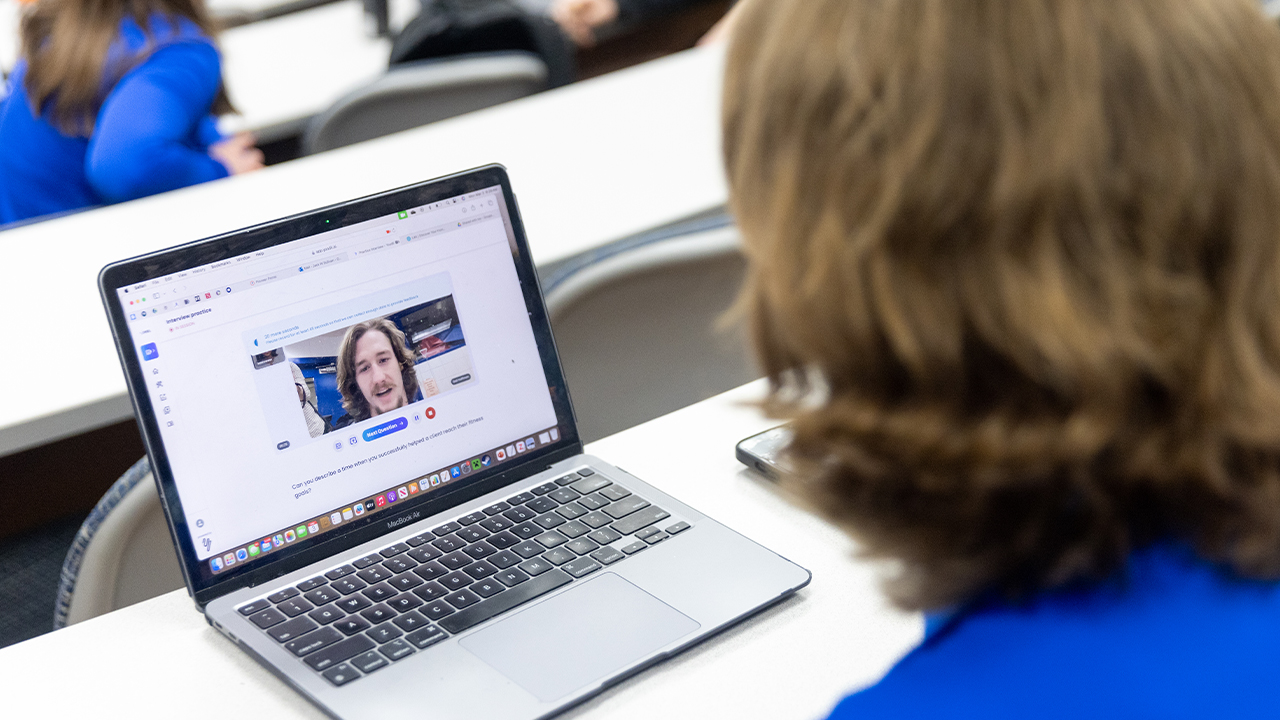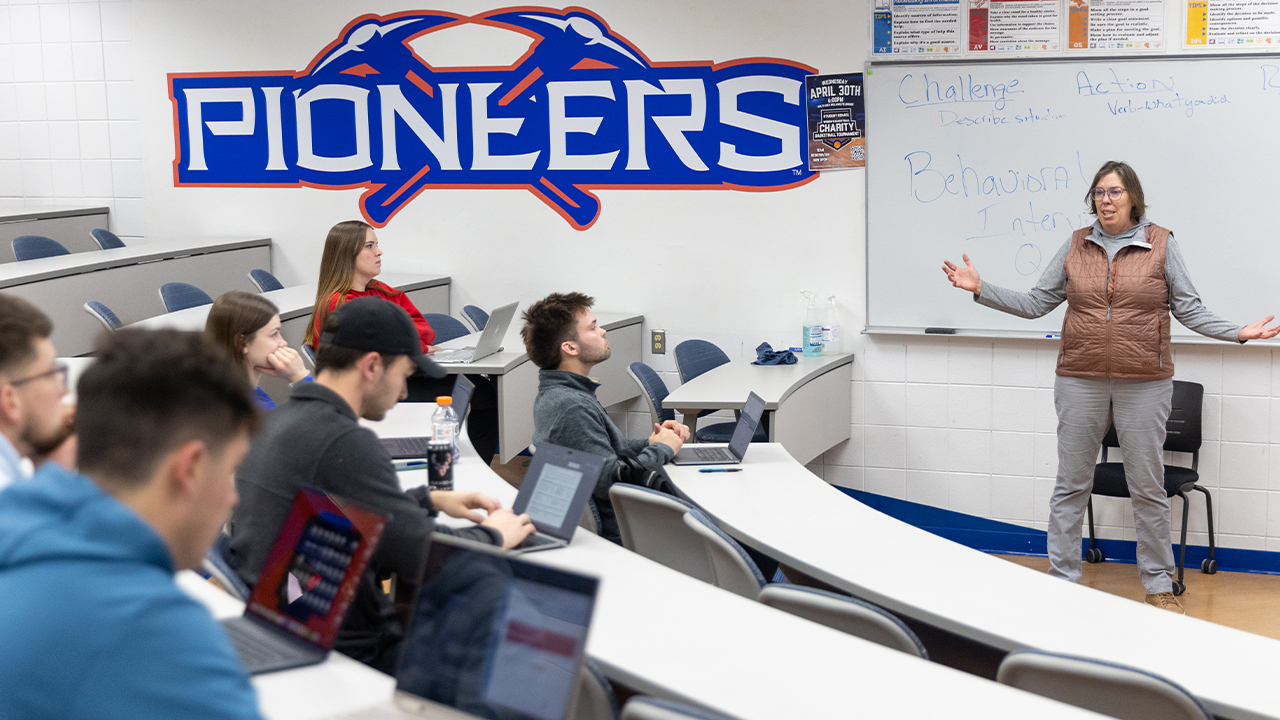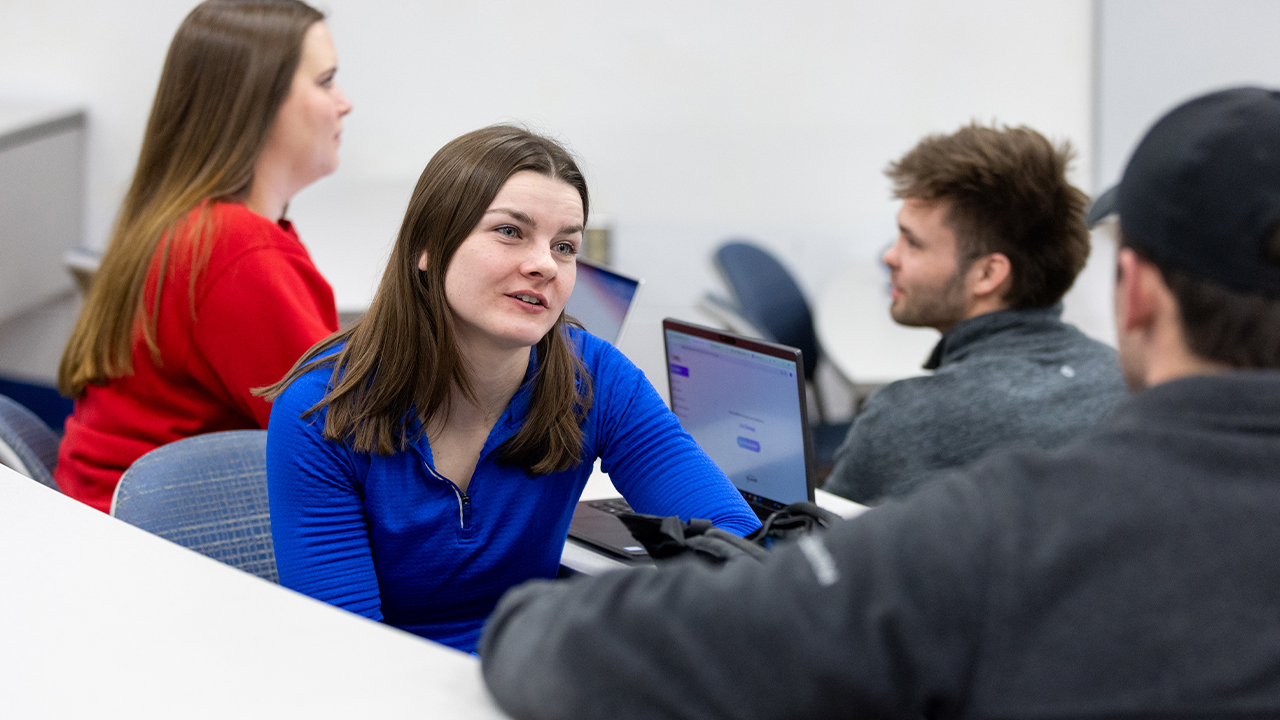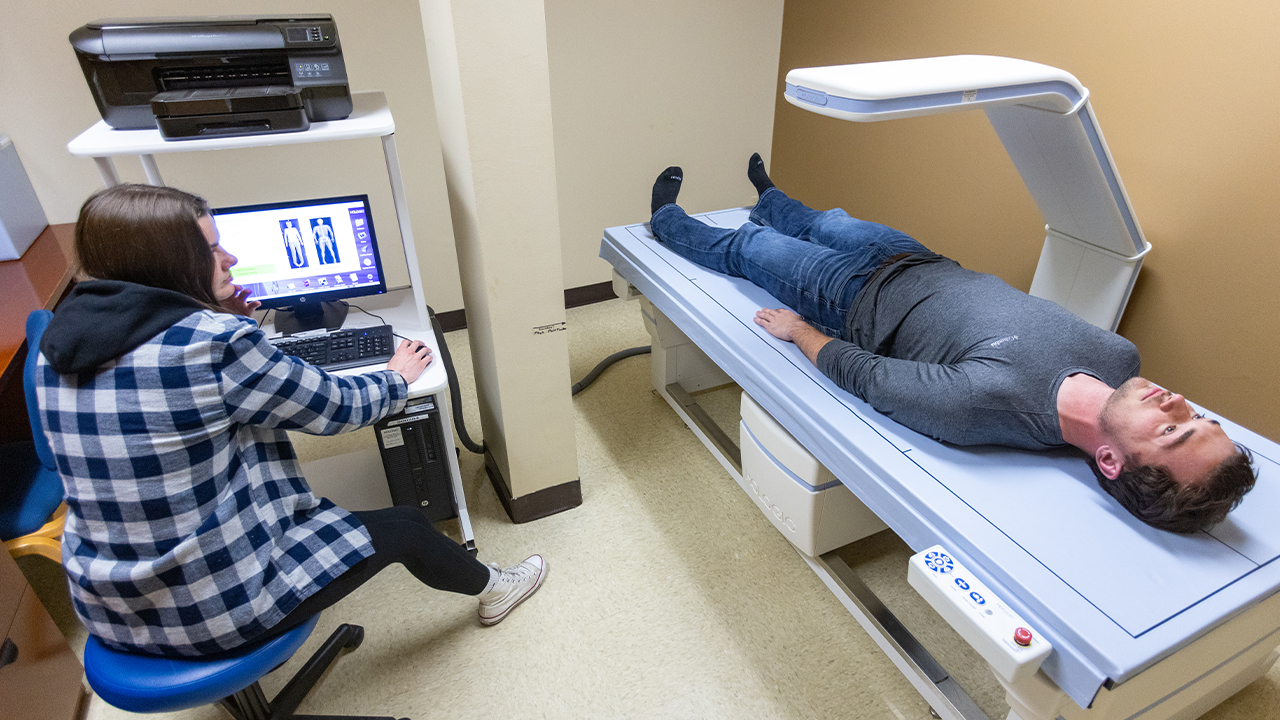




One of the biggest challenges today is ensuring that students develop skills that will make them irreplaceable by AI. With AI capable of generating anything from a fitness plan to a complex strategy, it begs the question: What makes us different? The key lies in the human connection. This is precisely what Health and Human Performance Professor Gail Hoffman is most concerned about. She is dedicating her class, HHP 4860 Fitness Wellness Internship, to preparing her students how to master both resume writing and interviewing skills to ensure they are fully prepared for the job market. Ironically, she’s using AI to do it.
“I am teaching this class to help my students transition into the workplace,” said Hoffman. “My students may not be counselors themselves, but to their future clients, they often are—motivators and guides. AI can replicate tasks, but it can never replace the human connection and expertise you bring. In this role, you will always be needed as a unique, indispensable professional.”
While technology can provide data and even structure, it can't replicate empathy, motivation, or the personal touch that a professional can offer. The Health and Human Performance two-semester internship program is designed not only to teach the technical aspects but also to immerse students in real-world interactions, where they learn to motivate and connect with clients. These skills will set the students apart, and as technology advances, they will remain essential in a world that values authentic human engagement.
Students need to be well-rounded and have a solid foundation before approaching the use of AI. The University of Wisconsin-Platteville’s Health and Human Performance Department offers labs where students develop interpersonal skills that will carry them through their careers. Two examples are the Exercise Science Lab, where they learn to assess body composition, metabolism and muscular fitness, and the FIT Lab, which is a clinical setting where students receive blood chemistry reports and complete basic fitness tests.
“We work in the FIT lab, conducting fitness tests on various students across campus,” said senior Brianna Giese, from Ellsworth, Wisconsin, who is in the Health and Human Performance program and graduating with a degree in exercise science. “This experience gets us into the mindset of meeting new people, making a positive first impression and keeping them at ease during the process.”
Students say Hoffman’s class offers career preparation, helping them adopt a professional mindset. Working one-on-one with clients allows them to practice relationship-building, which is rare in other settings. It's an opportunity to develop leadership skills and learn how to guide others effectively.
“We will need these skills in our chosen professions,” explained Giese. “Since my goal is to get into physical therapy and specialize in pediatrics, I will need to use every tool in my toolbox to connect with children.”
Students are honing their skills beyond just mastering labs and understanding the importance of human connection. In today's evolving job market, it’s essential to embrace the role AI plays without fearing it. Developing the right skills and learning how to effectively integrate AI into their professional lives is crucial to stand out in a field of job applicants.
Hoffman’s class includes instruction on the Applicant Tracking System (ATS), which is software used by companies to search, assess and rank candidates’ resume submissions. ATS uses a complex algorithm to identify resume content that matches the job posting, searching for key words, job titles, skills and experience.
"I’m finding a lot of value in this class as I prepare to graduate this semester,” said Brandon Jesse, a senior from Baraboo, Wisconsin, who is majoring in professional studies. “We’re working on how to answer targeted questions for our resumes, learning how to format them properly and rewording sections to make everything on our application stand out more."
Hoffman is making an impact on these students by demonstrating the value in integrating AI into their resumes and interview processes.
"As much as algorithms and AI are here to stay, we cannot shy away from them," said Hoffman. "Understanding how AI impacts job searches, like how ATS systems review resumes, is vital. You don't just need to write a resume; you need to write one that speaks the language of AI to become a preferred candidate."
Once they land that interview opportunity, Hoffman wants to make sure they are prepared, and she is using a software system called Oriel, which is as close to an interview as you can get using AI.
"Oriel was built on LAK Group’s commitment to transforming career journeys, combining human expertise with AI-driven insights to help students strategically manage their careers and succeed in the job market," explained Michael Grubich, president of LAK Group. “Oriel’s AI offers immediate feedback on resumes, applications and interview performance, making it an always-available career coach.”
Those insights include an AI-generated interviewer onscreen, which asks students targeted questions they are most likely to encounter in an interview based on the job title they’ve entered into the program. It also tracks their eye contact and filler words they use to make them aware of areas they need to improve upon.
"I think it's really helpful. It can be intimidating to watch and listen to yourself on screen, especially with the corrections it points out,” chuckled Jesse. “However, it's valuable because it allows me to adjust certain habits, like using filler words such as 'um.' After hearing it back, I realize where I need to improve, and now I have a clear guide to work on making those corrections.”
Students say that the class and the Health and Human Performance Department provide valuable career preparation by helping them develop the right skills to tackle the often-daunting process of finding a job. Working one-on-one with clients allows them to practice relationship-building skills. It also gives them the opportunity to take on a leadership role, guiding and directing others, which has been a highly beneficial experience.
"This department and this class offer a lot of career preparation, putting us in that professional state of mind,” said Giese. “We are learning how to work with a client, practicing that relationship-building. We rarely get other opportunities to have that kind of authority over someone at this stage and learn to lead them, so that's been really amazing."
This class and the department go beyond just preparing students for traditional careers; it molds them into well-rounded professionals ready to face the complexities of the modern world. By fostering the skills to work closely with clients, collaborate effectively with peers and adapt to the rapid advancement of technology, students are equipped to thrive. Understanding the growing impact of AI in the workplace, they emerge as the total package—ready to succeed in a rapidly changing world while possessing the soft skills necessary to lead and build meaningful connections.